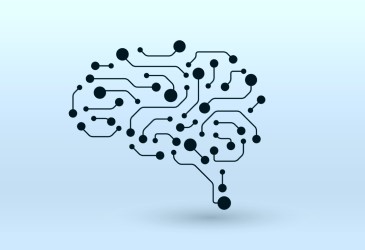research
Home | Research
Research Areas
DigInHealth is a pioneering research lab focused on digital innovations in public health. Established in 2023, we have been at the forefront of digital health research, driving transformative change in the way we approach public health challenges. Our lab is led by Ass. Prof. Yiannis Koumpouros, an esteemed expert in the field of public health and digital technologies. Together with a dedicated team of researchers and collaborators, we pursue groundbreaking research initiatives that span a wide range of topics, including but not limited to:
Robotics in Healthcare
- Exploring the potential of robotics in assisting healthcare providers with medical procedures and surgeries.
- Studying the use of robotics for physical rehabilitation and improving mobility in patients with disabilities.
- Examining the ethical and social implications of integrating robotics into healthcare settings.

Health Informatics and Electronic Health Records (EHR)
- Investigating the design and implementation of electronic health record systems for seamless healthcare data management.
- Exploring data interoperability and security in health informatics to ensure privacy and data integrity.
- Analyzing the impact of EHR adoption on healthcare efficiency and patient outcomes.
Digital Health Interventions
- Developing and evaluating mobile health applications for disease management and health promotion.
- Exploring the effectiveness of telecare and virtual healthcare delivery in improving access to healthcare services.
- Studying the impact of digital health interventions on patient engagement and health behavior change.
Artificial Intelligence (AI) in Public Health
- Leveraging AI algorithms for predictive modeling and early disease detection.
- Applying machine learning techniques to analyze large-scale health data and identify patterns and trends.
- Integrating AI in public health decision-making processes for improved efficiency and accuracy.
People-Centered Care and Digital Technologies
- Investigating the role of digital technologies in enhancing patient-centered care and shared decision-making.
- Exploring the impact of telehealth and remote monitoring on patient empowerment and healthcare outcomes.
- Assessing the acceptance and usability of digital health tools among diverse populations.
Virtual Reality (VR), Augmented Reality (AR), and Mixed Reality (MR) Technologies
- Exploring the use of VR/AR/MR in healthcare training and education for healthcare professionals.
- Studying the potential of VR/AR/MR for patient education and immersive health interventions.
- Assessing the impact of VR/AR/MR in rehabilitation and therapeutic applications.

Game-Based Learning in Public Health
- Investigating the effectiveness of game-based learning approaches in health education and behavior change.
- Developing serious games and gamified interventions to address public health challenges.
- Evaluating the role of gamification in promoting healthy behaviors and improving health literacy.
Wearable Devices and Sensor Technologies
- Developing and evaluating wearable health devices for continuous monitoring of vital signs and health metrics.
- Exploring the use of sensor technologies for early detection of health conditions and personalized health tracking.
- Assessing the usability and user experience of wearable health technologies.
Social Media and Digital Communication for Health Promotion
- Studying the use of social media platforms for health education and behavior change campaigns.
- Analyzing the role of online communities in supporting individuals with chronic conditions.
- Evaluating the effectiveness of digital health communication strategies in reaching diverse populations.
Ethical and Privacy Considerations in Digital Health
- Investigating the ethical challenges related to data privacy, consent, and ownership in digital health research.
- Addressing potential biases and disparities in digital health technologies and algorithms.
- Developing ethical guidelines and best practices for the responsible implementation of digital health interventions.
Cognitive Automation (CA)
- Cognitive Automation (CA) is a cutting-edge research area in our lab, where we explore the fusion of artificial intelligence (AI) and human-like cognitive abilities. Our research focuses on developing AI-powered systems that can learn, reason, and interact with humans in natural ways. We investigate how CA can transform healthcare decision support, medical imaging analysis, and drug discovery processes. By harnessing the power of CA, we aim to elevate precision medicine, optimize treatment plans, and enable personalized patient care for better health outcomes.

Tailored Patient Experience
- Tailored Patient Experience is a patient-centric research area in our lab that emphasizes personalized and patient-centered care. Our research explores ways to understand patients’ unique needs, preferences, and health goals, enabling healthcare providers to deliver tailored treatment plans and interventions. We investigate patient engagement strategies, shared decision-making approaches, and health coaching techniques to empower patients in managing their health. By promoting a tailored patient experience, we aim to foster stronger patient-provider relationships, improve treatment adherence, and achieve better patient satisfaction and health outcomes.
Internet of Medical Things (IoMT)
- The Internet of Medical Things (IoMT) is a transformative research area in our lab, focusing on the integration of medical devices, wearables, and healthcare applications to create a connected and data-driven healthcare ecosystem. Our research explores how IoMT technologies can enhance patient care, improve clinical workflows, and facilitate remote patient monitoring. By leveraging IoMT, we aim to enable seamless data exchange between medical devices and electronic health record systems, providing healthcare professionals with real-time patient data for informed decision-making and personalized care delivery.
Remote Patient Monitoring (RPM)
- Remote Patient Monitoring (RPM) is a key research area in our lab that aims to revolutionize healthcare delivery. Through RPM technologies, we explore ways to remotely monitor patients’ vital signs, symptoms, and health metrics, allowing for proactive management of chronic conditions and post-acute care. Our research focuses on developing user-friendly and reliable RPM systems that empower patients to actively participate in their healthcare and improve overall health outcomes. By harnessing RPM, we seek to bridge the gap between patients and healthcare providers, ensuring continuous care and reducing the burden on healthcare facilities.
Big Data & Analytics
- Our lab prioritizes research in Improved Big Data & Analytics to unlock the potential of vast healthcare datasets. We develop advanced data analytics techniques to extract valuable insights from diverse sources, such as electronic health records, medical imaging, and genomics data. By harnessing big data, we aim to enhance disease surveillance, identify health trends, and support evidence-based decision-making in public health. Our research focuses on scalability, data security, and privacy considerations to ensure that improved big data and analytics contribute to meaningful and actionable healthcare solutions.
Precision Medicine
- Precision Medicine is an important research area in our lab, focusing on tailoring medical treatments and interventions to individual patients based on their unique genetic, environmental, and lifestyle factors. Our research explores how advances in genomics, molecular profiling, and data analytics can inform personalized treatment plans and targeted therapies. We investigate how precision medicine can enhance disease prevention, early detection, and treatment outcomes, ultimately leading to more effective and patient-specific healthcare strategies. By promoting precision medicine, we aim to revolutionize healthcare practices, improve patient outcomes, and contribute to the advancement of personalized healthcare approaches.

Social Determinants of Health (SDOH)
- The study of Social Determinants of Health (SDOH) is a significant research area in our lab, focusing on understanding the social and environmental factors that influence health outcomes and disparities. Our research explores the impact of socioeconomic status, education, employment, housing, and access to healthcare on population health. We investigate how addressing social determinants can lead to improved health equity, reduced health disparities, and enhanced overall well-being. By gaining insights into the social factors that affect health, we aim to inform public health policies, interventions, and advocacy efforts to create healthier and more equitable communities. Through our research on SDOH, we strive to advance health equity and promote a comprehensive approach to improving population health.
Digital Biomarkers for Objective Sports Assessment
- Computer vision and AI-powered movement analysis: By employing machine learning algorithms, we can analyze movement patterns captured by wearable sensors or computer vision systems. This allow to identify subtle inefficiencies, potential risk factors for injuries, and optimal biomechanics.
- Wearable sensors and performance tracking: We investigate the use of various wearable sensors to track key performance indicators (KPIs) relevant to specific sports. This data can provide valuable insights into training effectiveness, fatigue levels, and recovery needs.
- Personalized feedback and intervention: By combining AI analysis with user-friendly interfaces, we aim to develop a system that delivers personalized feedback and recommendations to athletes and coaches. This can optimize training programs and prevent injuries.
DigInHealth

